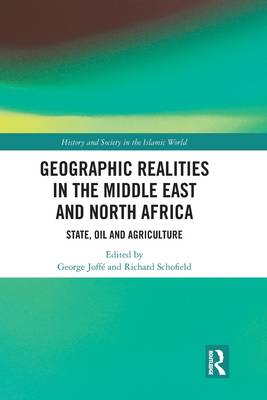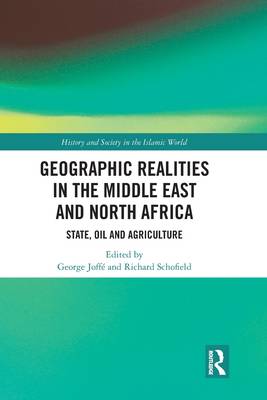
- Retrait gratuit dans votre magasin Club
- 7.000.000 titres dans notre catalogue
- Payer en toute sécurité
- Toujours un magasin près de chez vous
- Retrait gratuit dans votre magasin Club
- 7.000.000 titres dans notre catalogue
- Payer en toute sécurité
- Toujours un magasin près de chez vous
Geographic Realities in the Middle East and North Africa
State, Oil and Agriculture
Description
Celebrating the work of Keith McLachlan, a well-known and much-admired geographer of the Middle East and North Africa, this book combines three interrelated topics that define the region. The Middle East has been integral to the growth of the global oil industry, an aspect of its evolution since 1908 which has had profound geopolitical implications as well.
The territory was also the arena for the last European experiment in colonialism, a development that has left its legacy even today. And, historically, it has been the location of the great hydraulic civilisations of Egypt and Mesopotamia yet is still dependent on the flow of its two major river systems - the Nile and the Tigris-Euphrates - in an era of impending climate crisis. These themes form the essence of themes that are discussed in the chapters that follow. Keith McLachlan played a significant role in our understanding of these themes and of their effects in the contemporary world, as the comments of those who worked with him and have contributed towards this book reveal.
Examining agriculture, oil and state construction, this volume offers an insight into how the contemporary Middle East was constructed after the collapse of the Ottoman Empire. It is a key resource for scholars and students interested in geopolitics and the geography of the Middle East.
Spécifications
Parties prenantes
- Editeur:
Contenu
- Nombre de pages :
- 218
- Langue:
- Anglais
- Collection :
Caractéristiques
- EAN:
- 9780367609467
- Date de parution :
- 09-01-23
- Format:
- Livre broché
- Format numérique:
- Trade paperback (VS)
- Dimensions :
- 156 mm x 234 mm
- Poids :
- 326 g






